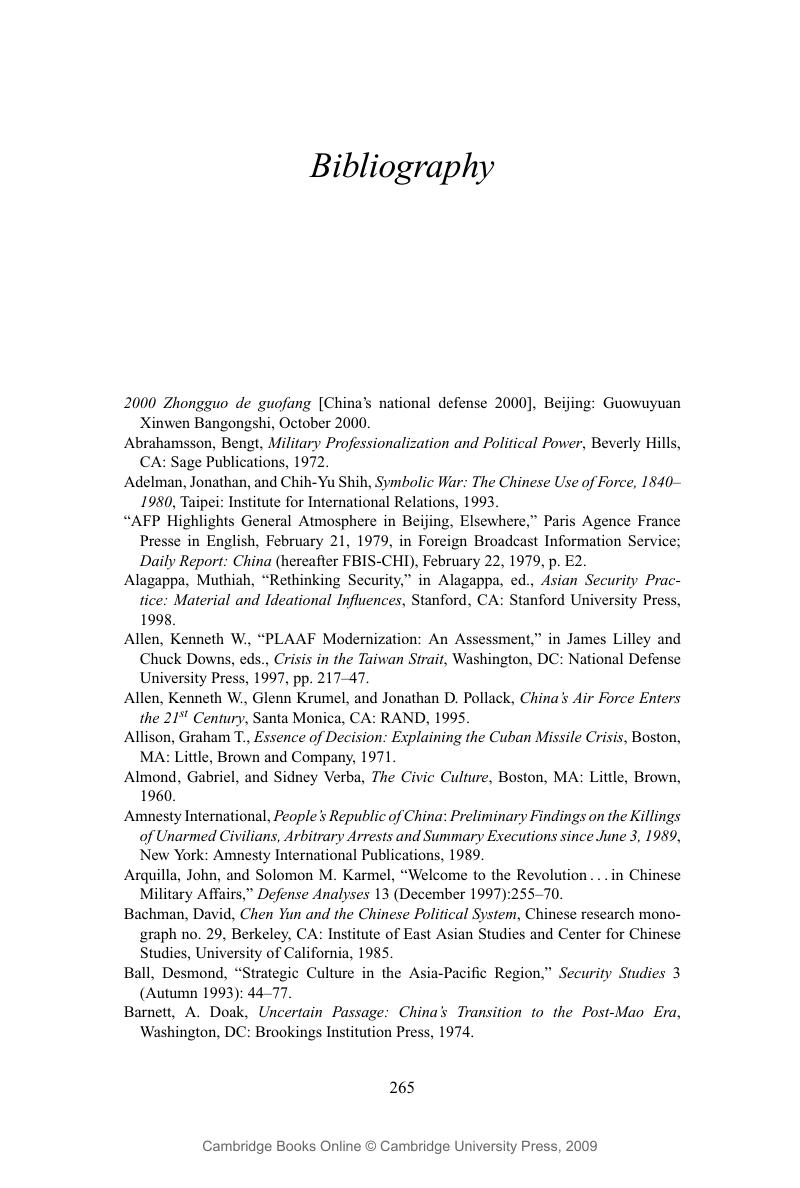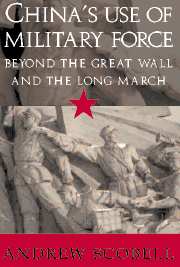Bibliography
Published online by Cambridge University Press: 29 July 2009
Summary

- Type
- Chapter
- Information
- China's Use of Military ForceBeyond the Great Wall and the Long March, pp. 265 - 292Publisher: Cambridge University PressPrint publication year: 2003

